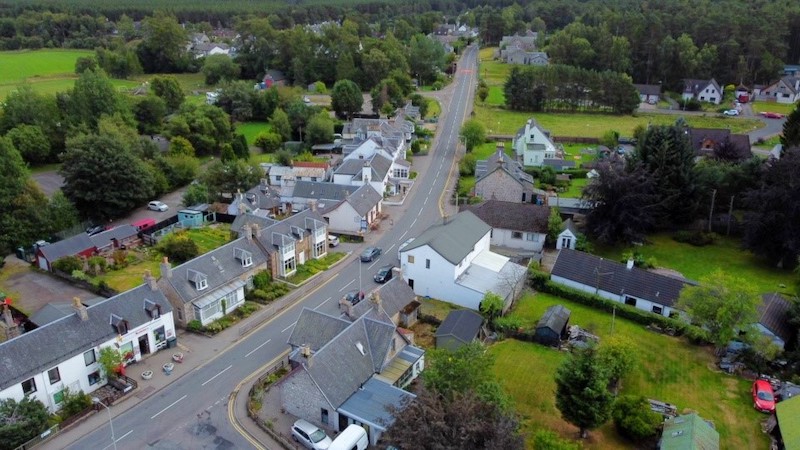The Winter Maintenance Plan for Badenoch and Strathspey this coming winter 2022/23 has been approved by Members of the Area Committee (29 August 2022).
Newly appointed Badenoch and Strathspey Area Committee Chair, Cllr Bill Lobban said:
“We are all aware that winter in Badenoch and Strathspey can be particularly unforgiving, therefore, it is important we put plans in place early to ensure the gritting policy, winter maintenance team and the equipment and supplies required are in place and ready to be implemented when the winter weather arrives.
“The Highland Council has an approved list of priority routes for treatment and would encourage the public to familiarise themselves with the gritting maps for the area specific to them.”
He added:
“It isn’t possible to treat every road and path; however, the dedicated team in Badenoch and Strathspey work extremely hard to best meet the needs of the area.
“We continue to encourage ‘Community self-help’, under the Council’s ‘Winter Resilience’ scheme, where communities can submit applications via their community council to carry out footway gritting operations.”
Applications for the Winter Resilience scheme can be made by clicking here
The Council will continue to provide the community with salt/grit, bins, scrapers and reflective waistcoats.
It is important to note that this does not replace the service provided by the Council but allows the community to provide an enhanced level of service.
The report, available here, Badenoch and Strathspey Winter Maintenance Plan, presents the current position regarding the delivery of the Highland Council winter service for 2022/23.
Badenoch and Strathspey Members today (29 August 2022) approved the plan, which includes priority routes and maps.
The plan explains that primary routes are treated first, followed by secondary routes and then all ‘other’ routes as resources permit.
Councillors noted the priorities, timings and resources available for gritting the Badenoch and Strathspey area network of Primary 99km (25%); Secondary 76km (20%) and Other 215km (55%).
The Council’s Winter Service Policy is in place to ensure a consistent level of service between areas and to ensure, as far as possible, the safety of drivers and pedestrians.
However, the operation of that Policy does not, and cannot, ensure that every road and footway will be free of ice or snow at all times.
Due to the introduction of additional driver’s hours regulations, the Council is currently considering the impact on staff levels required to maintain services.
If amendments are required to accommodate these, a future report will be taken to committee.
Across Badenoch and Strathspey there are five front-line gritters available and four footpath tractors. There are a limited number of spare gritters available across Highland.
The average annual usage of salt for Badenoch and Strathspey is approximately 5,500 tonnes.
Although the occurrence of snow lying on the roads has reduced, ice and frost remain prevalent especially on the higher routes.
There is sufficient salt in stock or on order spread across depot locations.
The Council publishes “Winter Services” leaflets for each operational area providing the public with information on snow clearing and gritting of Council roads along with maps showing the priority attributed to individual roads.
Primary (Highest) – Treated from 6am to 9pm Monday to Saturday, generally covering all the A class roads and some B class and including main commuter routes in the larger urban areas.
Secondary – Treated mostly after the primary network has been completed between 6am and 6pm Monday to Saturday and covering roads which in general connect smaller communities to the primary network.
On bus routes, gritting will not necessarily be completed before buses start their journeys.
Other – These are minor rural and local access and residential roads. We will treat these roads as resources become available
Salting will not prevent roads from icing up in extreme conditions.
This is particularly relevant on low traffic roads where there are insufficient vehicle movements to aid the interaction between the salt and the ice crystals.
- Drivers should take account of prevailing weather and road conditions
- Winter weather conditions within the Highlands can be very localised
- Black ice can be a particular danger. You cannot see it and it can still be there even after treatment
- Dawn frosts can also catch drivers unaware. At first light a clear sky will allow heat to radiate quickly from the road surface causing icy patches to form on wet or damp roads.
Prepare your vehicle
- Make sure your vehicle is fit for the journey
- Top up the windscreen-washer
- Check that all your lights are working – remember ‘it’s not to see, but to be seen’
- Check your tyre pressures and tread depths
- Consider the benefits of fitting winter tyres, particularly if you are driving in rural areas
- Prepare for frost by keeping a de-icer spray and scraper in the car. Prepare yourself
Prepare yourself
- Take a blanket or extra warm clothing
- Take a flask with a hot drink and some food
- Take a torch, boots and a shovel



